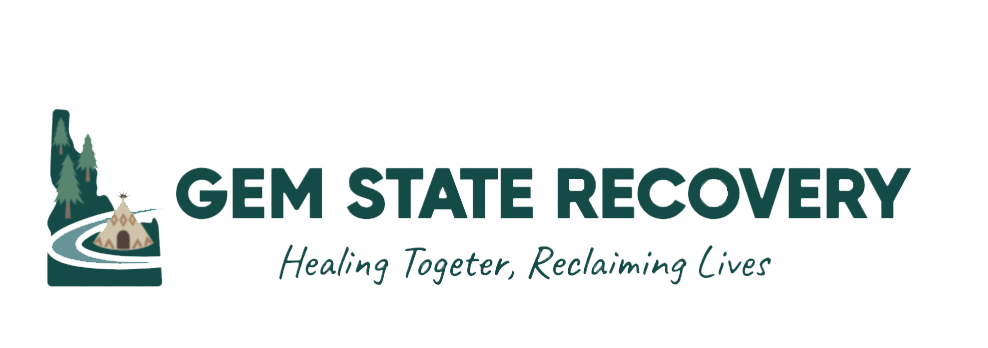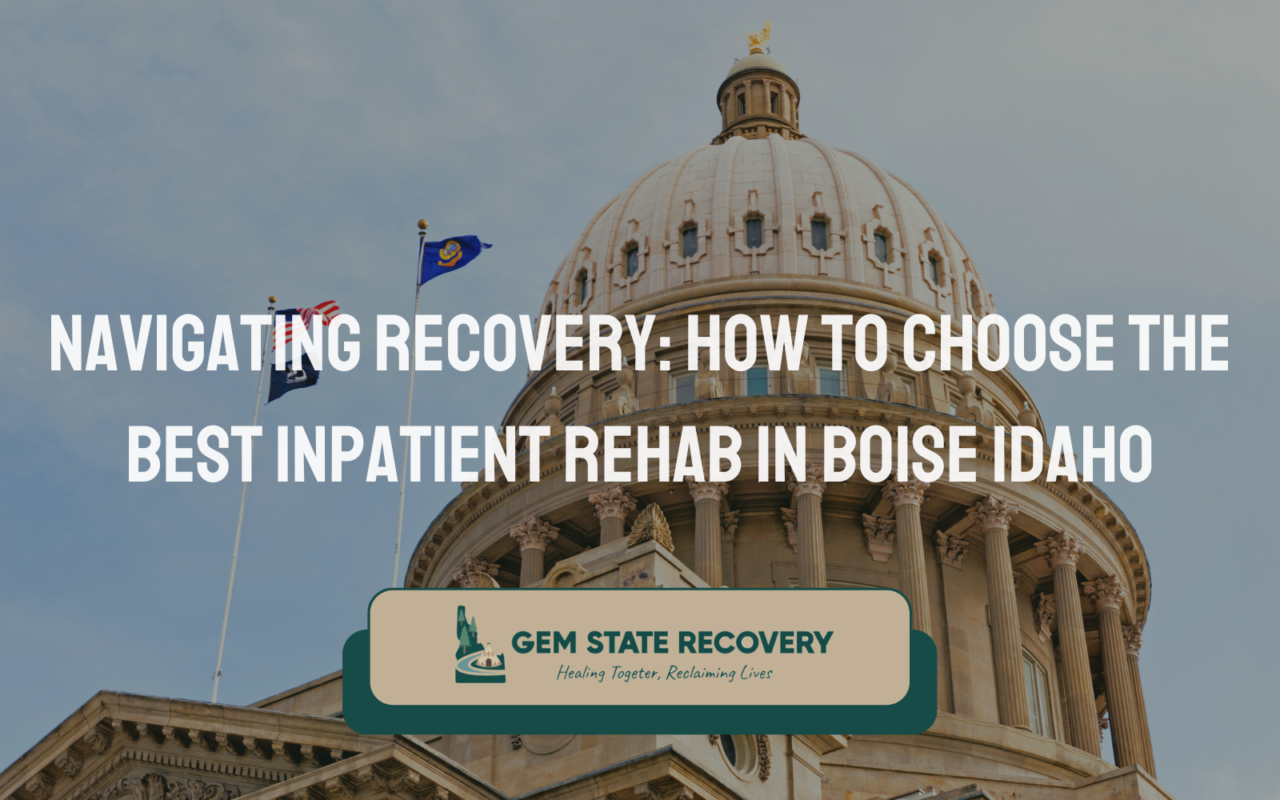Selecting the best inpatient rehab in Boise Idaho, is a pivotal step on the journey to recovery. With numerous options available, it’s vital to understand what to look for in a facility to ensure it meets your unique needs. In this guide, we’ll walk you through the essential considerations, helping you make an informed choice that sets you or your loved one on the right path to a healthier, substance-free life.
Why Choosing the Right Inpatient Rehab Matters
Recovery is a deeply personal journey, and the environment where it takes place plays a significant role in its success. The right inpatient rehab facility offers not only medical support but also emotional and psychological care, creating a holistic approach to recovery. Here’s why making the right choice is so important:
- Comprehensive Care: The best inpatient rehab in Boise Idaho will offer a wide range of services tailored to individual needs, including medical detox to safely manage withdrawal symptoms, personalized therapy sessions that address both mental and emotional health, and meticulous aftercare planning that ensures continuity of care after treatment. This holistic approach equips individuals with the tools they need to succeed in their recovery journey.
- Supportive Environment: The right rehab center fosters a nurturing and supportive community, where clients feel safe and understood. This environment encourages open communication, shared experiences, and peer support, which are crucial for healing and personal growth. By building strong connections with others who share similar struggles, individuals can find motivation and inspiration in their path to recovery.
- Long-term Success: With proper care and ongoing support, individuals have a significantly higher chance of avoiding relapse. Customized treatment plans that include coping strategies, ongoing therapy, and support groups can lead to sustained recovery. This long-term commitment to wellness not only helps individuals maintain their sobriety but also fosters a healthier lifestyle overall, ensuring they can thrive in their personal and professional lives.
Key Factors to Consider
When searching for the best inpatient rehab in Boise Idaho, several factors should guide your decision. Let’s break down the most crucial ones:
1. Accreditation and Licensing
First and foremost, ensure the facility is accredited and licensed. This guarantees that the rehab center meets specific standards of care and is regularly inspected by relevant health authorities.
Accreditation from organizations like the Joint Commission or the Commission on Accreditation of Rehabilitation Facilities (CARF) signifies that the facility adheres to high standards of care and ethical practices. Licensing ensures that the center complies with state regulations, providing an additional layer of assurance regarding the quality of care.
2. Treatment Approaches and Programs
Different rehab centers may offer various treatment modalities. When searching for the best inpatient rehab in Boise Idaho, look for a facility that provides a comprehensive treatment plan tailored to individual needs, including:
- Detoxification: Medical supervision during the detox phase is critical to ensure safety and comfort. The process involves removing toxins from the body and managing withdrawal symptoms, which can be severe.
- Therapy Options: Effective rehab programs offer a mix of individual counseling, group therapy, and family therapy. Individual therapy allows for personalized attention, addressing the root causes of addiction, while group therapy provides peer support and shared experiences. Family therapy helps repair relationships and build a support network.
- Holistic Treatments: Incorporating holistic approaches like yoga, meditation, and art therapy can enhance the recovery process. These methods address the mind, body, and spirit, promoting overall well-being and reducing stress.
3. Staff Credentials and Expertise
The qualifications and experience of the staff are paramount. Make sure the rehab center employs certified addiction specialists, therapists, and medical professionals who are experienced in treating substance abuse.
When searching for the best inpatient rehab in Boise Idaho, look for facilities where the staff includes licensed clinical social workers (LCSWs), licensed professional counselors (LPCs), and board-certified addiction medicine doctors. The presence of a multidisciplinary team ensures comprehensive care, addressing both physical and psychological aspects of addiction.
4. Facility Amenities and Environment
A comfortable, serene environment can significantly impact the recovery process. Tour the facility if possible, and take note of:
- Living Conditions: It’s essential to have clean, safe, and comfortable living spaces that foster a sense of belonging. The environment should not only feel welcoming and supportive but also include features such as well-maintained facilities, adequate lighting, and personal space that promote relaxation and mental well-being. A nurturing atmosphere can significantly enhance one’s quality of life and provide a strong foundation for personal growth.
- Recreational Activities: Access to a variety of opportunities for physical activity and recreation is crucial for mental health and overall happiness. Engaging in activities such as hiking, swimming, or team sports can help individuals reduce stress, improve mood, and foster social connections. Additionally, creating spaces for creative pursuits, such as art or music, can further enhance emotional well-being, providing a well-rounded approach to health.
- Nutrition: Having access to nutritious meals is vital for supporting overall health and encouraging a balanced lifestyle. Proper nutrition plays a pivotal role in recovery from illness and injury, offering the body the necessary vitamins and minerals to heal and function optimally. Incorporating a variety of whole foods, such as fruits, vegetables, lean proteins, and whole grains, can significantly boost energy levels and cognitive function, leading to improved physical and mental performance.
5. Success Rates and Reviews
Research the rehab center’s success rates and read reviews from former patients. While no facility can guarantee success, positive testimonials and high success rates are good indicators of effective treatment.
Success rates should be taken with a grain of caution, as they can be influenced by various factors. However, consistent positive feedback from former patients and their families can provide valuable insights into the facility’s quality of care.
Steps to Take When Choosing a Rehab Facility
Now that you know what to look for, let’s go through the steps to find the best inpatient rehab in Boise Idaho:
1. Assessment and Consultation
Start by consulting with a healthcare professional to get an assessment of your or your loved one’s specific needs. Many rehab centers offer free consultations to discuss treatment options and help determine the best course of action.
During the assessment, medical professionals will evaluate the severity of the addiction, any co-occurring mental health issues, and other factors that may influence the treatment plan. This step is crucial for creating a personalized approach to recovery.
2. Research and Shortlist
Use the factors mentioned above to research and create a shortlist of potential rehab centers. Utilize online resources, seek recommendations from healthcare providers, and reach out to local support groups for insights.
Online directories and reviews can provide a wealth of information about different rehab centers. Make a list of potential facilities and narrow it down based on your specific criteria and preferences.
3. Visit the Facilities
If possible, visit the shortlisted facilities. This gives you a firsthand look at the environment and allows you to ask questions directly to the staff.
During the visit, pay attention to the cleanliness of the facility, the demeanor of the staff, and the overall atmosphere. Speak with current residents if possible to get their perspective on the care they are receiving.
4. Check Insurance and Financial Options
Verify if the rehab center accepts your insurance plan and discuss any out-of-pocket expenses. Some facilities offer financing options or sliding scale fees based on income.
Understanding the financial aspect of rehab is crucial. Clarify all costs upfront and explore available payment plans or financial assistance programs. This step ensures that there are no unexpected expenses during the treatment.
5. Prepare for Admission
Once you’ve chosen a rehab center, prepare for the admission process. Gather necessary documents, understand the rules and regulations of the facility, and ensure all logistics are arranged for a smooth transition into the program.
Admission requirements may vary, but typically include medical records, identification, and insurance information. Make sure you understand what to bring and what to leave behind to avoid any disruptions.
Understanding the Different Types of Inpatient Rehab Programs
Inpatient rehab programs can vary significantly in terms of structure, duration, and focus. Understanding these differences can help you choose the best fit for your needs:
1. Short-term Residential Treatment
Typically lasting 30 days, short-term residential treatment is an intensive program designed to provide immediate support and stabilization. These programs are highly structured and focus on detoxification, therapy, and developing coping skills.
2. Long-term Residential Treatment
Long-term programs, which can last from several months to a year, offer a more extended period of support and care. They are ideal for individuals with severe or chronic addiction issues. These programs provide comprehensive therapy, life skills training, and relapse prevention strategies.
3. Dual Diagnosis Treatment
For individuals with co-occurring mental health disorders, dual diagnosis treatment centers offer integrated care. These facilities have the expertise to address both addiction and mental health issues simultaneously, ensuring a holistic approach to recovery.
4. Luxury Rehab Centers
Luxury rehab centers provide high-end amenities and personalized care in a resort-like setting. While they can be more expensive, they offer a range of amenities such as private rooms, gourmet meals, spa services, and recreational activities. These facilities focus on comfort and privacy, which can enhance the recovery experience.
5. Faith-based Rehab Programs
Faith-based rehab programs integrate spiritual or religious principles into the treatment process. These programs can be beneficial for individuals who draw strength and motivation from their faith. They often include spiritual counseling, prayer sessions, and community support from like-minded individuals.
The Importance of Aftercare and Continued Support
Recovery doesn’t end when you leave the rehab facility. Aftercare and continued support are crucial for maintaining sobriety and preventing relapse. Here’s what to look for in a robust aftercare program:
1. Continued Therapy
Ongoing therapy sessions, whether individual or group, help reinforce the skills learned during rehab and address any emerging issues. These sessions provide a space for continued personal growth and support.
2. Support Groups
Participation in support groups such as Alcoholics Anonymous (AA) or Narcotics Anonymous (NA) can provide a sense of community and accountability. These groups offer a platform to share experiences and receive encouragement from peers who understand the challenges of recovery.
3. Sober Living Homes
Sober living homes offer a transitional living environment for individuals who have completed rehab but need additional support before fully reintegrating into society. These homes provide a structured, substance-free environment with peer support.
4. Relapse Prevention Planning
A comprehensive aftercare program includes relapse prevention planning, which involves identifying triggers, developing coping strategies, and creating an action plan for potential setbacks. This proactive approach helps individuals stay on track and seek help before a relapse occurs.
Frequently Asked Questions about Inpatient Rehab in Boise, Idaho
Q: What’s the difference between inpatient and outpatient rehab?
A: Inpatient rehab requires patients to stay at the facility full-time, providing a structured environment with constant medical and emotional support. Outpatient rehab allows patients to live at home while attending treatment sessions, offering more flexibility.
Q: How long does inpatient rehab typically last?
A: The duration varies based on individual needs but generally ranges from 30 to 90 days. Some programs offer extended care options for those requiring longer treatment.
Q: Can family members visit during the inpatient program?
A: Many inpatient rehabs encourage family involvement and offer family therapy sessions. However, visitation policies vary, so it’s essential to check with the specific facility.
Q: What if I have co-occurring mental health issues?
A: When searching for the best inpatient rehab in Boise Idaho, look for a dual diagnosis facility that can address both substance abuse and co-occurring mental health conditions, ensuring comprehensive care.
Q: What should I pack for my stay at an inpatient rehab?
A: Each facility has its guidelines, but generally, you should bring comfortable clothing, personal hygiene items, necessary medications, and any important documents. Avoid bringing items that could be a distraction or pose a risk to your recovery.
Q: How do I stay motivated during rehab?
A: Staying motivated during rehab involves setting clear goals, maintaining a positive mindset, engaging in therapy sessions, and building a support network. Regularly reminding yourself of the reasons for seeking recovery can also help sustain motivation.
Conclusion
Choosing the best inpatient rehab in Boise Idaho, is a significant decision that requires careful consideration. By focusing on accreditation, treatment approaches, staff expertise, and facility environment, you can find a rehab center that aligns with your needs and supports your journey to recovery. Remember, the right choice can make all the difference in achieving long-term sobriety and a healthier, happier life.
For more information and personalized assistance, don’t hesitate to reach out to Gem State Recovery. We’re here to help you navigate the path to recovery with confidence and hope. Visit our website https://gemstaterecovery.com/ or call us at (208) 314-3107.






